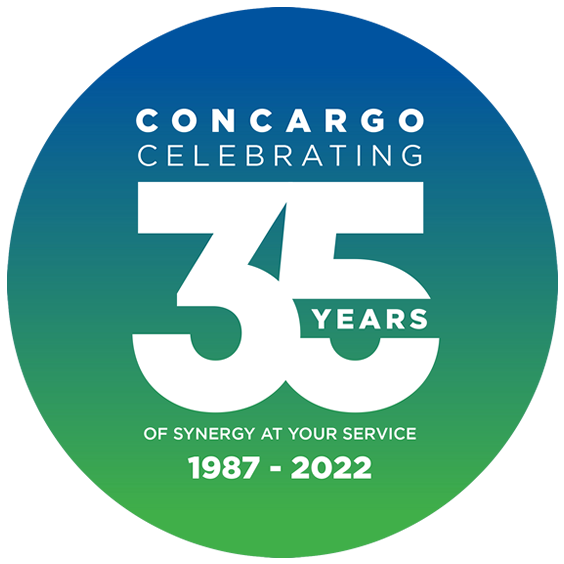Definition of 4PL / SP
The concept of Fourth-Party Logistics (4PL) began to emerge around 1996 with the term being registered as a trademark, however, not having coined the phrase, Concargo conceptualised and envisioned this initiative as early as 1988.
The definition of Fourth-Party Logistics (4PL) is an integrator that assembles the resources, capabilities and technology of its own organisation and other organisations to design, build and run comprehensive supply chain solutions.
In essence, Fourth-Party Logistics (4PL) means that one company is able to outsource the entire management of its supply chain to another company. This would include all the assets, planning and management of the process.
The 4PL management service provider would gather together all the constituent parts required such as systems, transport providers, order management, and inventory management with a view to providing the client with a fully integrated supply chain. In return the client will pay an appropriate fee and concentrate on its core business.
Fourth-Party Logistics (4 PL) presents a solution that incorporates the advantages of both outsourcing and insourcing to provide maximum overall benefit.
Fourth-Party Logistics differs from traditional 3PL arrangements in four main aspects:
- All aspects of the clients’ supply chain are managed by the 4PL organisation;
- It acts as a single interface between the client and multiple logistics service providers;
- It is also possible for a major third party logistics provider to form a 4PL organization within its existing structure; and
- The 4PL organisation is often a separate entity established as a Joint Venture (JV) or long-term contract between a primary client and one or more partners.
A separate management company is established as a JV or long-term contract between the primary client and at least one other partner, which contribute the start-up capital for the venture, as well as assets and expertise for ongoing operations.
The 4PL organization is a supply chain integrator and acts as a single interface between clients and the full scope of supply chain services. It is staffed with the best skills from the founding partners and should regularly be assessed against global benchmarks.
It can come in a variety of models, mainly as:
Industry Solution Model
To co-ordinate and manage the distribution operations of its primary clients initially, and then those of other related companies within the industry.
Supply Chain Partner Model
To manage an integrated industry supply chain consisting of manufacturers, material suppliers, 3PL providers and management consultants.
Benefits of the 4PL organisation include:
- Improves accountability
- Retains corporate supply chain knowledge
- Realises revenue opportunities by selling the supply chain services to external clients
- Addresses operational failures of 3PL services because the new entity allows the creation of a totally new culture
- Addresses strategic failures of 3PL services with a single point of contact to manage all aspects of the client supply chain
- Addresses financial failures of 3PL services by releasing capital through selling logistics assets to the 4PL organisation or on the free market
The 4PL concept addresses the shortfalls of traditional 3PL arrangements and offers the opportunity to achieve substantial incremental benefits. In addition, the concept can be extended to an existing 3PL, converting it into a 4PL.
Concargo’s assets are its human resources, and through these skills we have found our niche as a 4PL Supply Chain Service Provider with our core competency and focus on logistical services in Southern Africa. To this end, we represent in broader terms the marketing persona of Transport, and co-ordinate and bring to the market work that fills the dreaded empty leg for truckers, whilst at the same time offering value added services and deliverables as a “one stop shop” to the primary client at affordable rates.







